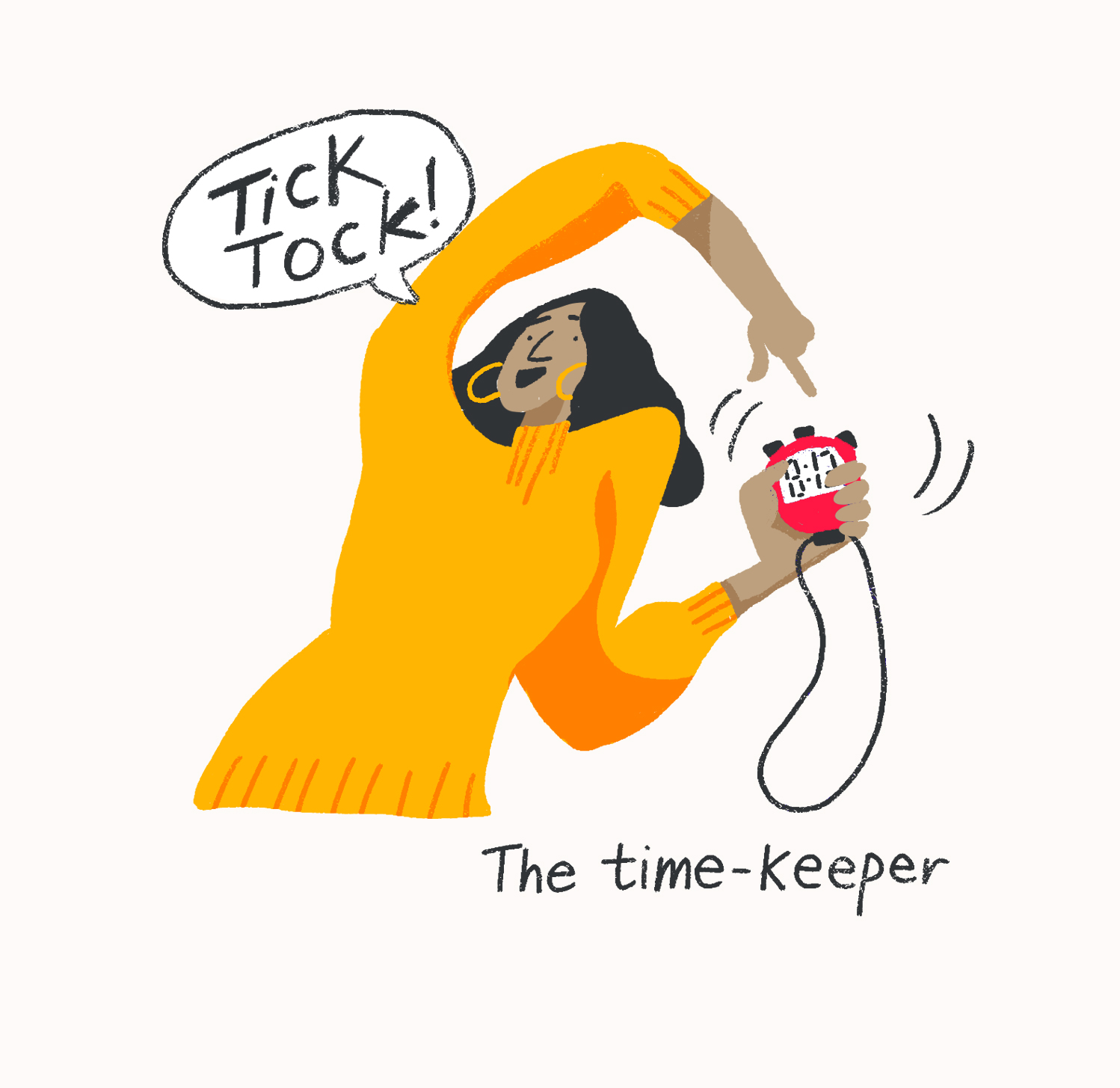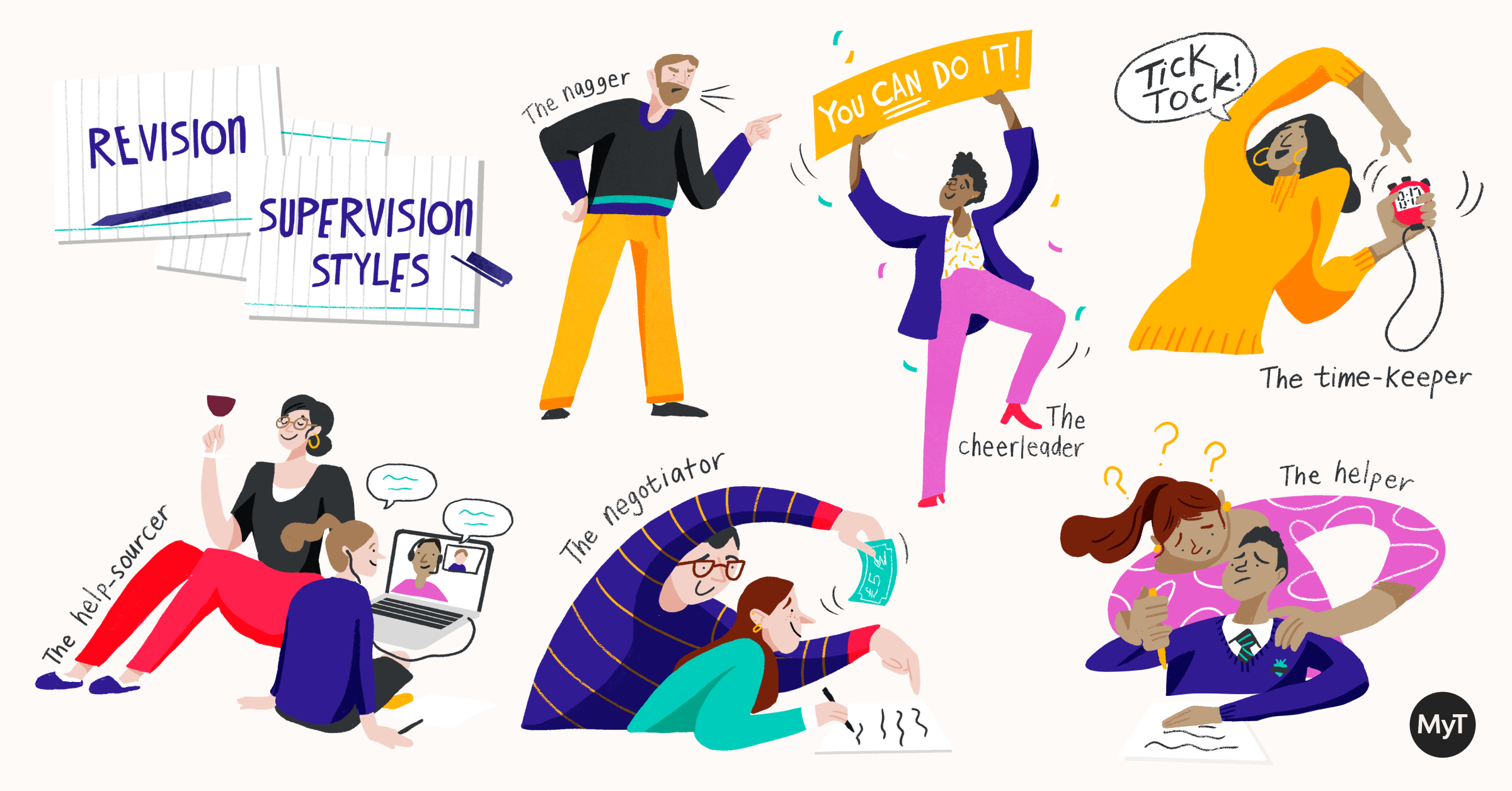Revision is key if your teen wants to achieve their best when it comes to exam time. Getting ahead and setting realistic goals can make all the difference, too.
But getting teens to do their revision? Well, that’s not so clear-cut. Every exam season, parents across the country deploy a bunch of different tactics to try and help their children knuckle down and get it done.
Of course, different teens respond well to different approaches and there’s no one-size-fits-all method. There are lots of different ways you can support their studies – and some make for more positive family relationships than others.
We’ve rounded up 6 common revision supervision styles and spoken to Dr Kate Jenkins, our psychology consultant, about the implications of each on you and your child’s relationship.
Do you see yourself in the list below? Which style of revision parent are you?


The Nagger
No matter how many times you remind them to do something, it can still seem to go in one ear and out the other. Whether it’s ‘don’t forget to pack your P.E. kit’ or ‘you need to start revising for your Chemistry exam,’ you might feel that your teen zones out quite a lot.
‘Nagging inevitably produces resistance, especially in adolescents,’ explains Dr Kate. ‘So while you’re just desperate to see your teen get some work done before bedtime, often the more you ask (frustratingly), the less likely they might be to go and do it.’
Try framing the benefits of getting the work done – and do it once. ‘By getting this Chemistry revision done, you’ll feel more confident when it comes to doing the exam.’


The Negotiator
For kids who are incentivised not by the joy of learning, but by treats, you might find yourself striking deals as if you’re Alan Sugar and they’re a contestant on The Apprentice. This can work for a bit, but for teens to really learn the study skills they need in adulthood, they’ll eventually need to learn how to motivate themselves.
‘By bribing your teen to do work, it removes the positive reinforcement of just feeling good that you’ve done your best,’ says Dr Kate. So, while offering a tenner for completing their English revision might feel as if the problem’s sorted for now, unfortunately, it’s more of a plaster than a cure.
Try to connect doing their revision with emotional value or their aspirations:
- You’ll feel more calm and able to relax once your revision’s done
- Practicing independent work like this will help you at university and when you get a job
- By spending a little bit of extra time with this subject, you’ll feel more confident in class and in the exams
Of course, throw in a reward once in a while if that’s your style. Everyone likes a surprise outing/tenner/favourite dessert.


The Helper
You know your teen is struggling with one of their subjects, so you roll up your sleeves to see if you can help. You think, how hard can a GCSE be? Sometimes a parent helping out can be a way for parent and teen to bond over a shared activity.
Most of the time though, questions don’t look like they did when you were in school, and it’s not all coming flooding back either. Your stress can rub off on them, which can then make you even more stressed that you haven’t helped them!
This can be very confusing for your child who’s trying to reconcile one method taught at school with your method. If your child needs help, help them identify the areas they don’t understand and make a list of questions to take to a teacher or tutor for extra help.


The Help-Sourcer
When you’re teen gets stuck revising a topic, you want to help in the best way you can. And that means turning to the experts. The most helpful thing for your child is if someone with experience in the subject and exam board is able to help them work through the bits they don’t understand.
A one-to-one tutor is perfect for this. They specialise in helping kids work through the topics they’re stuck on, as well as study skills, exam prep and confidence-building.
So instead of nagging, time-keeping or incentivising, you’re left with a properly supported teen.


The Time-Keeper
Parenting can often feel like a full-time military operation, and no army is complete without a strict schedule. So that’s home by 4 pm, snack till 4.15 pm, History revision until 5.15 pm and a 45-minute break for dinner. It’s how Britain won the war, and how you’ll win the revision battle, right?
It’s true that structure can really help a teen become more organised. But the flip side of enforcing a timetable is that, especially with teens, if they feel too pressured, they’re more likely to push against your clock-watching.
‘Revision can be a collaborative approach. The child needs to know you’re there for support if they need you, but in their teens they can start to adopt a more mature attitude towards it with trust,’ says Dr Kate. So if they feel that you trust them and support them, they’ll feel empowered to take initiative themselves, and feel more proud once they’ve completed something.

The Cheerleader
Encouraging and praising your child can be a really effective way to get them to apply themselves. Lots of teens struggle with confidence, and anxiety around exams is one of the biggest blockers to doing their best. A fear that they’re not good or clever enough can stop them from getting their heads down to work at all. It’s of course really distressing as a parent to see your child struggle like this.
‘Try talking about what their anxiety is around. Do they feel unprepared for the exam? Is it the quantity, or the nature of the work?’ says Dr Kate. By pinpointing the cause of their worry, then together you can work out how to overcome it.
If they tell their teacher that they’re finding things tricky, their school might also help them find the resources they need to reach their full potential. In any case, reminding your child what they’re good at, what makes them special, and that you support them no matter how they do in exams is a powerful way to give them the confidence they need to face the music (or rather, the revision).
Whatever your revision supervision style, if you’re simply engaging in your child’s learning then you’re halfway there. In truth, you might blend a little of all of these styles. By valuing their education, you’re showing them that it’s something they should care about too. Good luck for the exam season!




